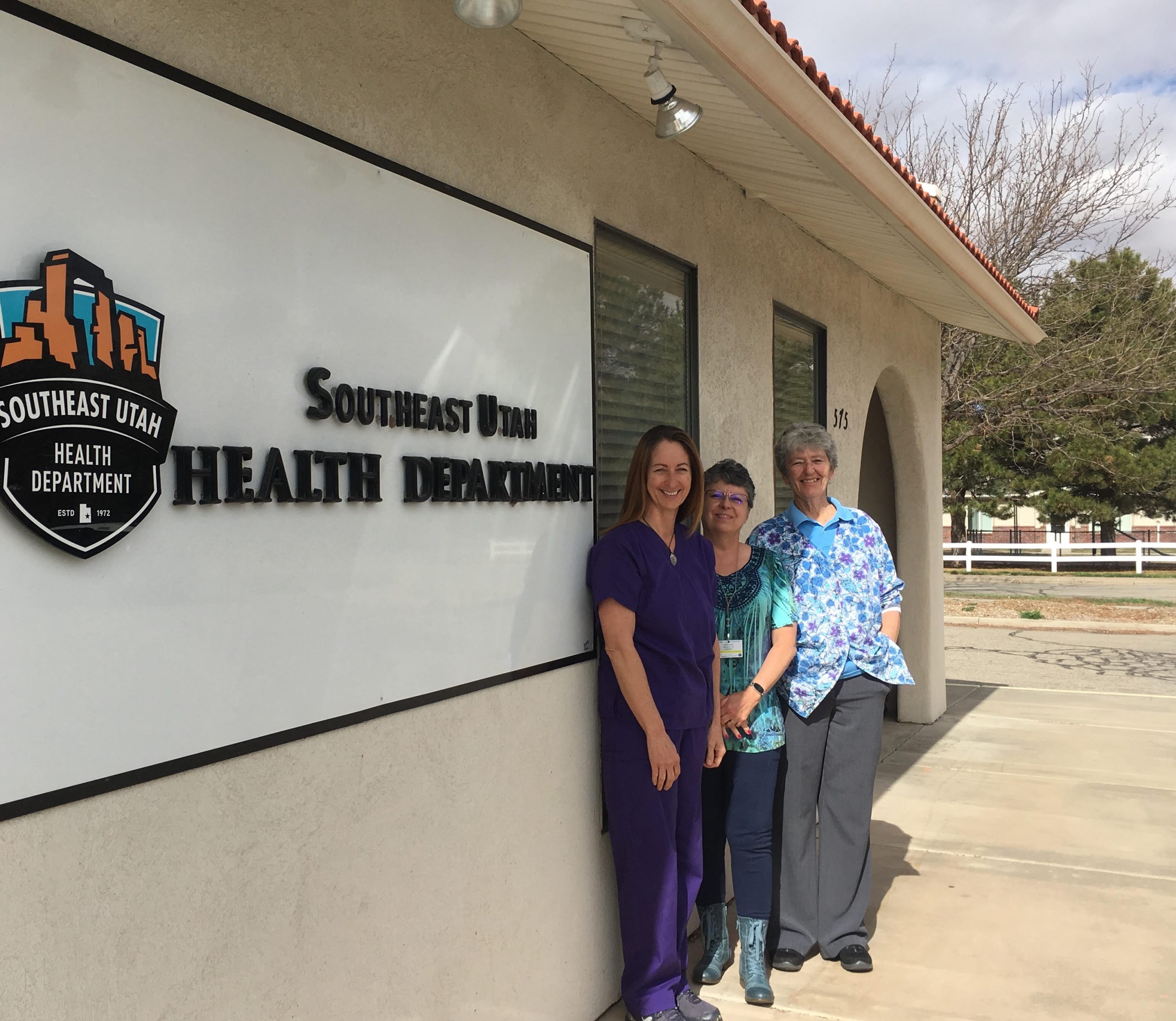Some information may be outdated.
“Southeastern Utah is facing many public health challenges,” wrote Southeast Utah Health Department Director Bradon Bradford in the department’s 2017 annual report. “Along with our local communities, we are working hard to solve the well-publicized and devastating challenges such as suicide, opiate addiction and the less well-known problems that include proper infant nutrition, access to health care and physical activities.”
Headquartered in Price, Southeast Utah Health Department (SEUHD) serves residents of Grand, Emery and Carbon counties. In addition to the Price office, there are offices in Castle Dale and Moab. The Moab office is located at 575 S. Kane Creek Blvd.
To address the aforementioned challenges, SEUHD offers a wide variety of clinical and environmental health services, as well as health education. SEUHD also administers the Women, Infants and Children (WIC) program, “a supplemental nutrition program for pregnant women, breastfeeding mothers, postpartum women, infants and children up to age five,” according to its website.
Benefits include vouchers for the purchase of certain healthy foods, nutrition education, breastfeeding information and referrals to other programs.
In order to qualify for WIC through SEUHD, applicants must live in Grand, Emery or Carbon County and meet income requirements that vary based on household size. Those persons receiving Medicaid or food stamps do not have to submit further proof of income. Moab residents may apply at the health department office in Moab.
According to SEUHD materials, the income limit for WIC applicants increases with every additional family member, and unborn children count toward household size. For example, a woman from a household of four people is eligible for WIC if her household earns $3,870 or less per month, which comes to $46,435 per year. A woman from a household of six can have an income of $5,202 per month, or $54,427 per year, and still qualify for assistance. Citizenship is not a requirement.
“We just want healthy kids,” WIC Director Teresa Martinez said, citing studies that show nutritional support, education, and medical care improve outcomes for mothers and their children.
Martinez said that women who come to the health department to participate in the WIC program can simultaneously take advantage of other health department programs, such as baby visits and Baby Your Baby, a program for pregnant women who do not have health insurance that allows them to see a doctor right away while their Medicaid application is being processed, as well as immunizations.
“It’s a wonderful program,” she said. “We just wish more people would utilize it.”
A major clinical service that the health department provides is the administration of vaccines that prevent major illnesses such as diphtheria, pertussis (also known as “whooping cough”), tetanus, polio and measles, amongst many others, under the supervision of a health department nurse.
According to its website, vaccination clinic hours at the Moab health department office are Mondays and Wednesdays from 3 until 4:30 p.m.
SEUHD also employees school nurses who can dispense prescribed medication to students and work with parents and doctors to develop “health-care plans” for students with special health needs or medical conditions. They also conduct regular vision and scoliosis screenings and lice screenings as necessary, and lead “maturation teaching” for fifth-grade students, according to the SEUHD website.
SEUHD nursing director Sara Braby said that having a presence in the school and seeing kids when they’re younger helps catch potential problems early, and also helps teach kids about healthy lifestyle choices.
SEUHD also provides health education to the general public on a wide range of subjects, including car seat and vehicle safety, tobacco-use prevention and cessation and type 2 diabetes prevention and treatment. The website contains a wealth of information and health advice; many informational pamphlets are available at the Moab office, as well.
Yet another function of SEUHD is to monitor and regulate the safety of certain spaces that could affect public health.
“If something can affect human health or the environment, it is our job as environmental health scientists to help minimize its impact,” SEUHD Environmental Health Director Orion Rogers said. He is based at the Moab health department office.
For Grand County, Rogers and Jonathan Dutrow are the health inspectors.
They are in charge of overseeing plan reviews and inspections related to restaurant and mobile food permitting, as well as for swimming pools. They are also tasked with permitting and inspections for adult and child care centers, schools, body art businesses and hotels. They permit and inspect all wastewater (septic) systems, too.
Rogers and Dutrow also perform drinking water sampling and reporting in accordance with guidelines set by the Utah Department of Environmental Quality (DEQ), and they help safeguard air quality by helping communities comply with the burn window established by the DEQ, as well as monitoring asbestos and fugitive dust.
Rogers has also been overseeing two pilot projects that he believes will likely lead to a change in state regulations regarding graywater.
“Graywater” refers to the relatively clean water that goes down the drains of showers, sinks and washing machines.
This water can be reused for landscape irrigation, preventing the need to use fresh groundwater. The systems that Rogers is testing could allow for “much simpler and less expensive types of systems” than what current regulations allow. Rogers said the update to the graywater rule is still in progress and will ultimately be decided by the DEQ.
For more information, visit seuhealth.com or call the Moab office at 435-259-5602.
WIC, permitting, immunizations and more
“We just want healthy kids.”
Appreciate the coverage? Help keep local news alive.
Chip in to support the Moab Sun News.





